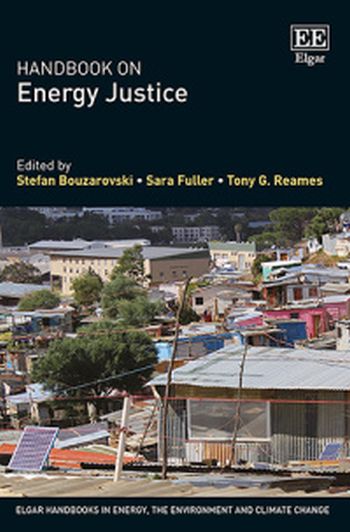
Offering a unique and critical perspective on energy justice, this Handbook delves into an emerging field of inquiry encapsulating multiple strands of scholarship on energy systems. Covering key topics including generation, transmission, distribution and demand, it explores fundamental questions surrounding policy, climate change, security and social movements.
The Handbook illuminates the rapidly expanding and diversifying scholarly domains where energy justice has developed to date. Chapters provide an overview on energy justice issues across a range of socio-technical and political contexts, including differences along lines of race, gender, age, geography, housing, socio-economic status and infrastructure. The Handbook further incorporates non-Western perspectives to expand the transitional vocabulary and frameworks of energy justice.
Grounded in empirically rich case studies from across the world to support nuanced framings, situated methods and informed policy, this Handbook will be of interest to students of development, human geography, environmental policy and politics. It will also be useful to practitioners working in international organisations and development agencies working in development and the environment.